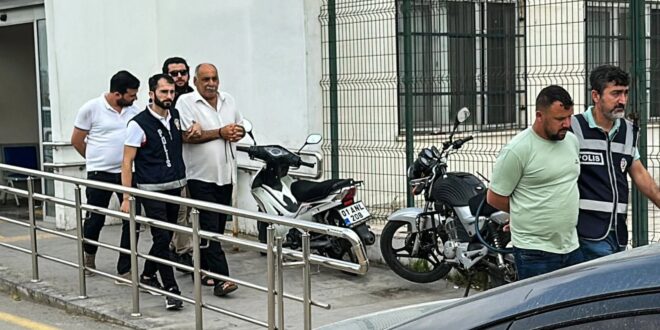Israel has long been at the center of international organ trafficking networks and has stolen organs from dead Palestinians
Police in the Turkish city of Adana detained 11 suspects, five Israeli and two Syrian, on allegations of organ trafficking, the Daily Sabah reported on 5 May.
The Provincial Directorate of Security’s Anti-Smuggling and Border Gates Branch began investigating after examining the passports of seven individuals who arrived in Adana from Israel about a month ago by plane for the purpose of health tourism. The two Syrian nationals, ages 20 and 21, were found to have fake passports.
Further investigation revealed that Syrian nationals had each agreed to sell one of their own kidneys to two of the Israeli nationals, ages 68 and 28, for kidney transplants in Adana.
During searches at the suspects’ residences, $65,000 and numerous fake passports were seized.
Israel has long been at the center of what Bloomberg described in 2011 as a “sprawling global black market in organs where brokers use deception, violence, and coercion to buy kidneys from impoverished people, mainly in underdeveloped countries, and then sell them to critically ill patients in more-affluent nations.”
The financial newspaper added, “Many of the black-market kidneys harvested by these gangs are destined for people who live in Israel.”
The organ-trafficking network extends from former Soviet Republics such as Azerbaijan, Belarus, Ukraine, and Moldova to Brazil, the Philippines, South Africa, and beyond, the Bloomberg investigation showed.
Accusations of Israeli involvement in organ trafficking also apply to the occupied Palestinian territories.
In 2009, Sweden’s largest daily newspaper, Aftonbladet, reported testimony that the Israeli army was kidnapping and murdering Palestinians to harvest their organs.
The report quotes Palestinian claims that young men from the occupied West Bank and Gaza Strip had been seized by the Israeli army, and their bodies returned to the families with missing organs.
“‘Our sons are used as involuntary organ donors,’ relatives of Khaled from Nablus said to me, as did the mother of Raed from Jenin as well as the uncles of Machmod and Nafes from Gaza, who all had disappeared for a few days and returned by night, dead and autopsied,” wrote Donald Bostrom, the author of the report.
Bostrom also cites an incident of alleged organ theft during the first Palestinian intifada in 1992. He says that the Israeli army abducted a young man known for throwing stones at Israeli troops in the Nablus area. The young man was shot in the chest, both legs, and the stomach before being taken to a military helicopter, which transported him to an unknown location.
Five nights later, Bostrom said, the young man’s body was returned, wrapped in green hospital sheets.
Israel’s Channel 2 TV reported that in the 1990s, specialists at Abu Kabir Forensic Medicine Institute harvested skin, corneas, heart valves, and bones from the bodies of Israeli soldiers, Israeli citizens, Palestinians, and foreign workers without permission from relatives.
The Israeli military confirmed that the practice took place but claimed, “This activity ended a decade ago and does not happen any longer.”
Israel’s assault on Gaza since 7 October has provided further opportunities for the theft and harvesting of Palestinians’ organs.
On 30 January, WAFA news agency reported that the Israeli army returned the bodies of 100 Palestinian civilians it had stolen from hospitals and cemeteries in various areas in Gaza.
According to medical sources, inspection of some of the bodies showed that organs were missing from some of them.
On 18 January, the Times of Israel reported that the Israeli army confirmed reports that its soldiers dug up graves in a Gaza cemetery, claiming its soldiers were trying to “confirm that the bodies of hostages were not buried there.”
 Eurasia Press & News
Eurasia Press & News




